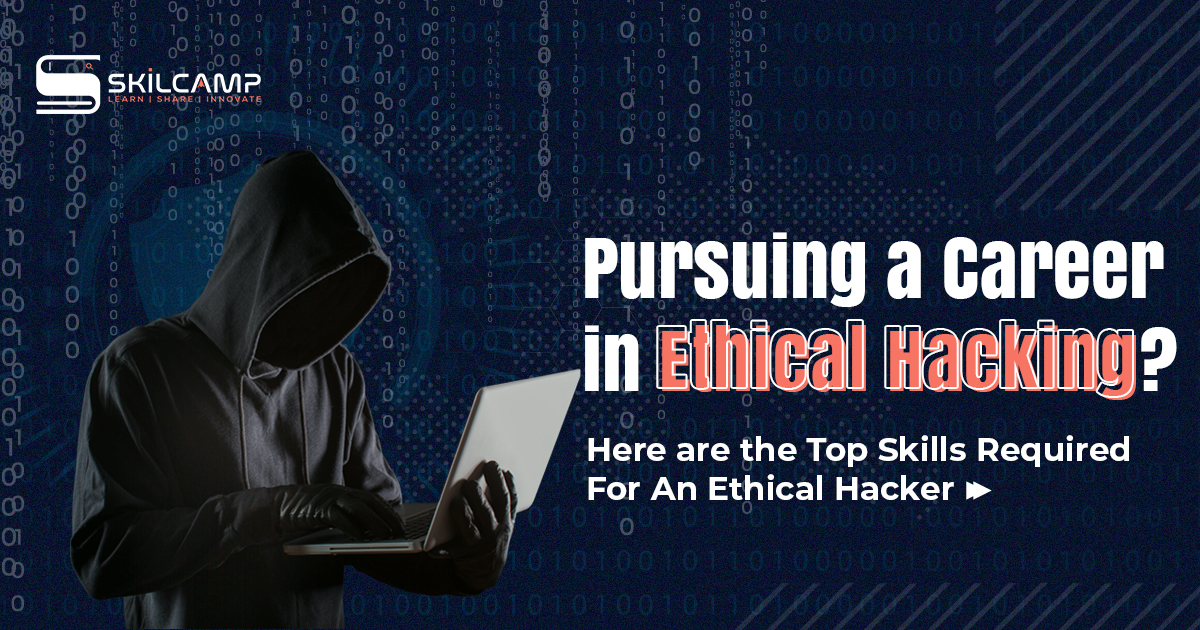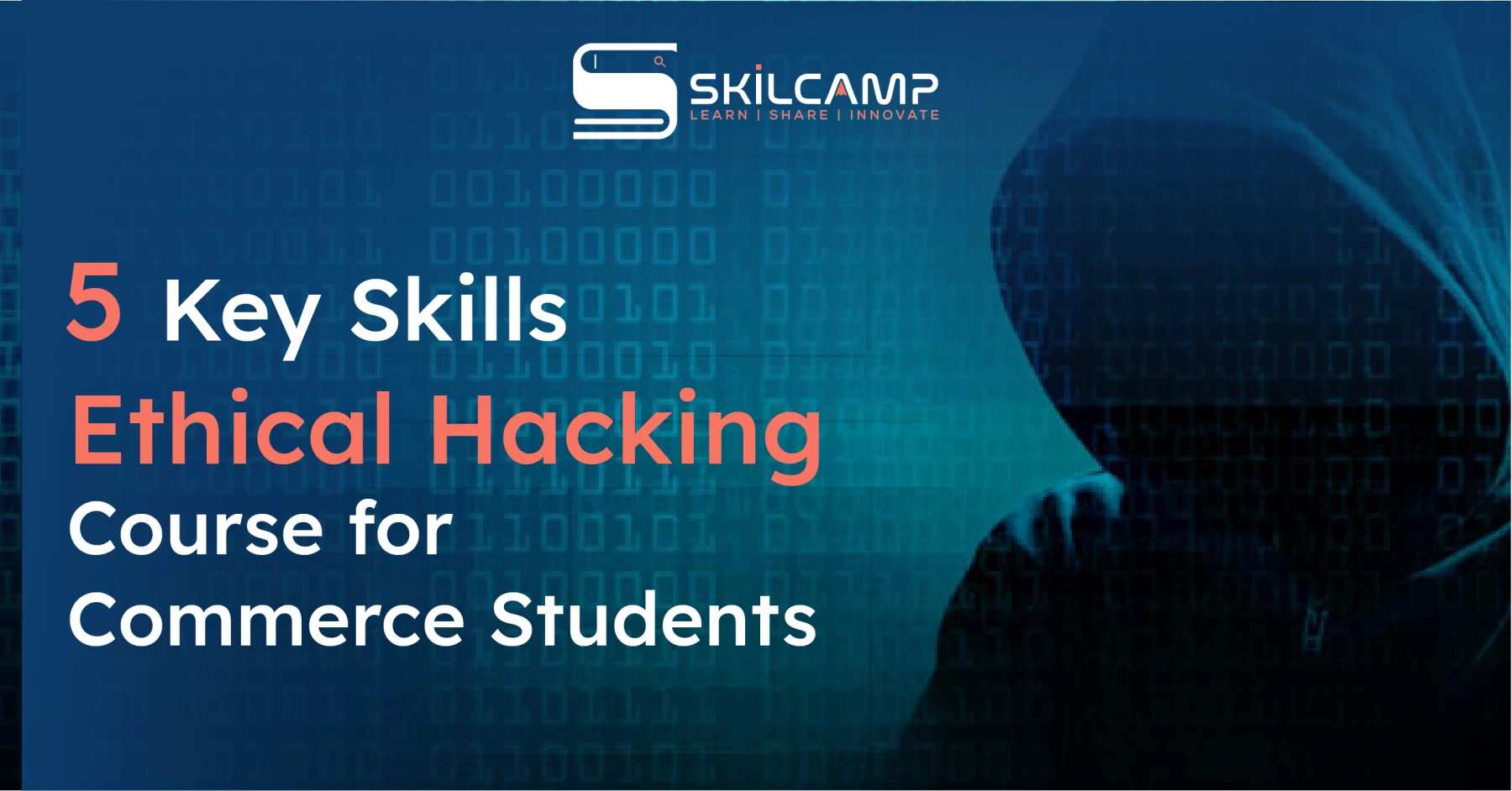Table of Contents
The term Hacking is as old as the internet itself. In many manners, it has always been a field of interest for many with a knack for Information Technology. While there was a time when the word hacking would spook people, today, the right kind of hackers is appreciated and demanded by companies across the globe. Are you planning a career in ethical hacking? Stick around to discover the top skills required for an ethical hacker. Secrets to Master Ethical Hacking.
Ethical hacking is the activity of breaking into a system or network with the express intent of finding vulnerabilities and risks that might be exploited by an actual hacker. Penetration testing is another name for ethical hacking. The goal is to improve the safety of the system or network by addressing the flaws found during testing. Ethical hackers rely on the same processes and software as their malevolent counterparts for their work. However, they are allowed to make use of these resources in order to strengthen security and shield the systems from threats.
Here is a quick look at in-demand top ethical hacking skills:
| 1 | Computer Networking Skills |
| 2 | The Ability to Use Linux |
| 3 | Knowledge of Cryptography |
| 4 | Basic Hardware Knowledge |
| 5 | Reverse Engineering |
| 6 | Database Skills |
| 7 | Problem-solving Skills |
| 8 | Cloud Computing Proficiency |
Who is an “Ethical Hacker”?
A white hat hacker or ethical hacker is a security expert who employs hacking techniques for the purpose of assessing the strength of an organization’s information security measures. For the most part, an ethical hacker is looking for the following data:
- What are the potential entry points an adversary may use to obtain access to sensitive data, physical areas, or computer networks?
- What insights might an adversary get from this data?
- Is anyone keeping an eye out for this kind of thing or doing something about it when it happens in the computer networks?
The need for ethical hackers has increased as a result of the widespread use of digital technologies and the emergence of new sectors, such as blockchain and the Internet of Things (IoT).
Top 8 Secrets to Master Ethical Hacking
Let’s start with some basic skills!
- Computer Networking Skills
Having solid networking knowledge is a top skill required for an ethical hacker, today. Simply described, a computer network consists of a collection of computers, or Hosts, that are linked together by a series of communications channels. Ethical hackers will benefit from learning about networking concepts like DHCP, Supernetting, Subnetting, and others so that they may investigate the linked machines in a network, identify possible security problems, and devise effective countermeasures.
Moving on to a little complex computing ability.
- The Ability to Use Linux
A group of free and open-source Unix-like OSes built on the Linux Kernel are collectively known as Linux. Under the terms of the GNU General Public License, the OS’s source code may be updated and redistributed by anyone for any purpose. Learning Linux is one of the top skills required for an ethical hacker. They should study Linux because it offers the highest level of security available in a desktop operating system. This is not to say that Linux is completely safe; like any OS, it is targeted by malware. However, Linux is much less susceptible to attack than other platforms. Therefore, anti-virus software is unnecessary.
- Knowledge of Cryptography
Anyone who wants to be an ethical hacker has to be able to decipher encrypted data. Cryptography is a method for protecting information using a system of secret keys and mathematical methods. Data encryption, decryption, hashing, digital signatures, and other related technologies are all part of this umbrella term. There are two major categories of cryptographic methods: symmetric and asymmetric. Both the transmitter and the receiver use the same key for encryption and decryption in a symmetric method, while in an asymmetric method, the keys are distinct.
It’s not always about the software!
- Basic Hardware Knowledge
Hardware refers to the physical components of a computer, such as a processor, display, input devices, memory, storage medium, video card, audio component, motherboard, and so on. In contrast, software consists of data and procedures that may be saved and executed by a computer. Let’s say you’re interested in breaking into a computer-controlled machine. It’s essential that you first acquire knowledge of the equipment or its operation.
Now the computer has a robust software security mechanism, but hackers often don’t put much stock in hardware protection, meaning that an intruder who manages to get access to the machine’s inner workings might potentially fool around with the hardware. How else would one learn how to install a new motherboard, use USBs to transfer data, set up a new operating system, etc., if not for learning about hardware? Therefore, being an ethical hacker also requires familiarity with hardware basics, making hardware knowledge a top skill required for an ethical hacker.
Some talents go beyond computers.
- Reverse Engineering
One, among the many top skills required for an ethical hacker, is the ability to analyse a product’s source code, the product’s design, required specifications, and features that may be reconstructed. It creates a database of programmes and uses this to produce data. The goal of reverse engineering is to provide documentation for a legacy system and make it easier to do maintenance on it. Reverse engineering is often used in software security to check for and fix potential security holes. It aids in strengthening a system, making it more resistant to outside attacks like malware. Some programmers even resort to “ethical hacking” — deliberately breaking into their own system in order to search for security flaws.
- Database Skills
There can be no database creation or management without a database management system. In order to protect the organisation from any harm, it is crucial that this software be hack-proof and can only be accessed by authorised personnel. To aid in the development of a robust DBMS, it is essential that ethical hackers have a firm grasp of this, in addition to a variety of database engines and data formats.
Related Course: Certified Ethical Hacker Course By Skilcamp
- Problem-solving Skills
Effective problem-solving requires the ability to identify the root cause of the issue and work backwards to develop a workable solution. An ethical hacker has to be able to think critically and creatively to solve problems, in addition to the technical abilities mentioned above. They should be open to new ideas and methods, as well as properly check for any security lapses. This calls for extensive testing and a creative spirit for coming up with novel solutions.
- Cloud Computing Proficiency
In today’s interconnected digital landscape, familiarity with cloud computing platforms like AWS, Azure, or Google Cloud is increasingly vital for ethical hackers. Understanding how to leverage cloud services for storage, computation, and networking enhances an ethical hacker’s ability to assess and secure cloud-based systems. Mastery of cloud computing also enables ethical hackers to simulate real-world scenarios and test for vulnerabilities in cloud infrastructures, ensuring comprehensive security measures are in place.
Recommended Reading : Scope of Ethical Hacking in India
If you are determined and know what you are doing — opportunities are just around the corner. Read this story of an inspiring ethical hacker
Hacking his father’s computer in 2007 to being mentioned in Forbes 30 under 30, Trishneet Arora is a man with many achievements to his name, all that at the age of 28.
Trishneet is an ethical hacker who started his own company, TAC Securities, back in 2012 and has since been working with MNCs and Government bodies like CBI. Unlike today, when there is a diverse ecosystem of ethical hacking practices and courses, only a few years back, it was all but a blur. People didn’t understand ethical hacking. In those times, Trishneet taught himself the process and power of hacking. Today, he is the subject of an upcoming Biopic to be directed by none other than Hansal Mehata.
Bottom line, if a young mind with limited resources can do it, you, with so many courses and learning opportunities can do it too.
FAQs on Ethical Hacking
1. What is the role of an ethical hacker?
An ethical hacker holds responsibilities that range from monitoring the latest trends in hacking attacks to improving the security of the company systems and maintaining the security systems of the company at all levels.
2. Where can I work as an ethical hacker?
The opportunities for an ethical hacker are several. Software companies, government establishments and fintech organizations are some of the prominent sectors that require ethical hackers.
3. Where do I learn ethical hacking?
There are a number of online courses available for anyone who wants to start a career in ethical hacking. A professional certification program is a way to go followed by learning under a seasoned ethical hacker.
Endnotes – Hacking Your Way to the Top
Learning the skills necessary to become an ethical hacker may be done alone but better and much faster under the guidance of professionals in the field. At Skilcamp, we design carefully tailored courses to educate candidates about ethical hacking and equip them with the knowledge and skills necessary to protect their own interests.




Leave a Reply